PsyOps: Psychedelic Use In Warfare?
Today, we're embarking on an extraordinary journey into the rabbit hole of psychedelic use in warfare. Get ready to have your mind blown as we peel back the layers of history, separate fact from fiction, and even dare to speculate about the potential future of these mind-altering substances in the realm of warfare. Buckle up, because we're about to take a deep dive into a world that seems straight out of a mind-bending sci-fi thriller!
A Brief History Lesson: Exploring the Psychedelic Warriors of the Past
Prepare to be amazed as we uncover the historical connections between psychedelics and warfare. Throughout the annals of time, numerous cultures and civilizations have delved into the mysterious realm of mind-altering substances to gain an edge in battle. One such example is the ancient Eleusinian Mysteries, where participants consumed a psychedelic brew known as kykeon to experience altered states of consciousness and divine revelations. These rituals were believed to instill bravery and provide warriors with a connection to the gods, enhancing their chances of victory.
Moving forward in history, we encounter the use of Soma in ancient India. Soma, a hallucinogenic drink mentioned in the Rigveda, was believed to grant warriors strength, courage, and divine protection on the battlefield. Its consumption was an integral part of rituals and warfare strategies during that time.
Even in more recent history, during World War II, the United States conducted experiments with a psychedelic substance called LSD as part of the now infamous MK-Ultra program. The goal was to explore the potential of LSD for intelligence gathering, mind control, and psychological warfare. While the full extent of the program's activities remains shrouded in secrecy, it is an undeniable historical fact that psychedelics were weaponized in some capacity during this era.
The Rumors and Speculations: Separating Fact from Fiction
Now, let's tackle the sensational claims and conspiracy theories surrounding psychedelic use in warfare. It's time to put on our skeptical hats and sift through the rumors to find the grains of truth. While concrete evidence is hard to come by, there are instances where the use of psychedelics for nefarious purposes cannot be completely dismissed.
During the Vietnam War, there were reports of the United States military experimenting with psychedelics as a means of psychological warfare. The infamous "Operation Whitecoat" conducted by the U.S. Army involved testing various drugs, including LSD, on military personnel to assess their potential effects in combat situations. These experiments aimed to uncover methods of incapacitating enemy forces by exploiting their altered states of consciousness.
Furthermore, rumors have circulated regarding the use of psychedelic substances by intelligence agencies in interrogations and information extraction. While the exact extent and details of such practices are difficult to verify, they add an intriguing layer to the historical connections between psychedelics and warfare.
The Potential Future: Psychedelics and the Evolving Nature of Warfare
As we peer into the future, we must acknowledge that the realm of warfare and its tactics are in a constant state of evolution. While it's impossible to predict with certainty, some experts dare to speculate about the potential future role of psychedelics in military applications.
One area of interest lies in the potential therapeutic benefits of psychedelics for soldiers suffering from mental health issues such as post-traumatic stress disorder (PTSD). Studies have shown promising results in using psychedelics like MDMA and psilocybin to assist in the healing and recovery process. By addressing the psychological toll of warfare, these substances may help soldiers reintegrate into society and find solace amidst the trauma they've endured.
Another potential application could be the use of non lethal alternatives in conflict resolution. As our understanding of the therapeutic potential of psychedelics expands, some envision a future where these substances are used to facilitate negotiations, promote empathy, and de-escalate tense situations. By altering consciousness and promoting introspection, psychedelics may open doors for dialogue, understanding, and resolution in times of conflict.
However, it is essential to approach these potential future applications with caution and ethical considerations. The use of psychedelics in warfare raises complex moral questions. How do we ensure the informed consent of individuals involved? How do we prevent the misuse of these substances for manipulative or coercive purposes? These ethical dilemmas demand thorough examination and regulation to prevent the abuse of psychedelic warfare tactics.
Ethical Considerations: Navigating the Moral Landscape
When discussing psychedelic use in warfare, we cannot ignore the ethical considerations surrounding these substances. The very nature of warfare raises profound questions about the boundaries of morality and the impact on human lives. As we navigate this complex landscape, it becomes imperative to strike a balance between the potential benefits and the ethical implications.
Responsible use of psychedelics in warfare necessitates transparency, strict adherence to international regulations, and prioritization of the well-being and agency of individuals involved. Safeguards must be in place to protect against manipulation and ensure that consent is freely given. Additionally, comprehensive training and support should be provided to those who may be exposed to psychedelics in a military context, minimizing potential harm and ensuring the preservation of human rights.
The Power of Responsible Use: Shaping the Future Narrative
Regardless of the historical connections or potential future applications, responsible use and ethical considerations must always be paramount. Psychedelics hold tremendous potential for healing, personal growth, and transformation, but their application in warfare demands caution, transparency, and strict adherence to international regulations. We must prioritize the well-being of individuals and the preservation of human rights, seeking the highest standards of accountability.
Moreover, it is crucial to recognize that psychedelics have profound implications beyond the battlefield. These substances can contribute to positive change in various aspects of society, such as mental health, creativity, and personal growth. By embracing their potential responsibly, we can harness their power for the betterment of humanity as a whole.





